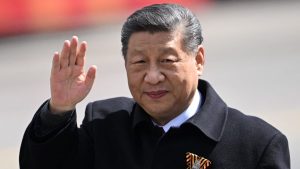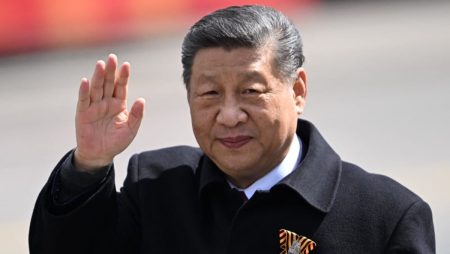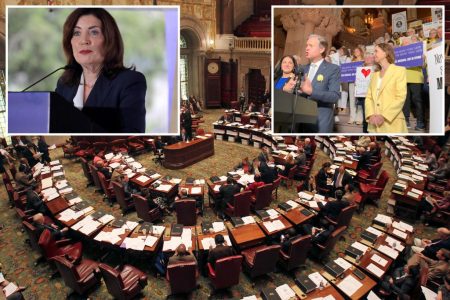Donald Trump’s proposition of Canada becoming the 51st US state has resurfaced following Canadian Prime Minister Justin Trudeau’s resignation announcement. Trump linked Trudeau’s decision to his purported awareness of Canada’s economic reliance on the US, suggesting that the prime minister acknowledged the necessity of a merger to address trade imbalances. Trump emphasized the potential benefits of such a union, including the elimination of tariffs, reduced taxes, and enhanced security against perceived threats from Russia and China. This proposal, initially broached during a meeting between Trump and Trudeau at Mar-a-Lago in late November, reignites a discussion surrounding the complex relationship between the two North American nations. The meeting, prompted by Trump’s threat of imposing tariffs on Canadian products, focused on key issues including the fentanyl crisis, illegal immigration, trade deals, and the US-Canada trade deficit.
Trump’s assertion that a significant portion of the Canadian population supports the idea of joining the US remains unsubstantiated. His claim that such a merger would automatically lead to lower taxes and a complete resolution of security concerns also requires further examination. The economic implications of such a significant political and economic restructuring are multifaceted and would necessitate extensive analysis before any definitive conclusions could be drawn. While Trump presented the potential benefits of a merger, the practicalities and potential drawbacks, including the loss of Canadian sovereignty and the integration of disparate political and social systems, warrant careful consideration. Furthermore, the existing trade relationship between the US and Canada, despite its complexities, plays a vital role in the economies of both nations.
Trudeau’s resignation, announced on Monday morning, stems from a confluence of factors, including declining approval ratings, internal party pressures, and criticism of his handling of economic challenges, including rising inflation and the cost of living. While Trump attempted to connect Trudeau’s resignation to his own proposal, the Canadian prime minister cited the need for a “real choice” in the upcoming election and his desire to avoid internal party struggles as primary reasons for his decision. The departure of Finance Minister Chrystia Freeland, marked by a critical resignation letter citing Trudeau’s economic policies and Trump’s threats, further destabilized his leadership.
The timing of Trump’s renewed call for a US-Canada merger, coinciding with Trudeau’s resignation, cannot be overlooked. It underscores Trump’s persistent interest in reshaping the relationship between the two countries and raises questions about the potential influence of his rhetoric on the Canadian political landscape. While it is unclear whether Trump’s proposal carries any real weight, it serves as a reminder of his unconventional approach to international relations and his willingness to challenge established norms. The political and economic dynamics between the US and Canada are intricate, and any significant shift in their relationship would have far-reaching consequences for both nations.
Trudeau’s nearly decade-long tenure as prime minister has been marked by both successes and challenges. While he enjoyed periods of high approval ratings, his government also faced criticism over various issues, including the SNC-Lavalin affair and controversies surrounding pipeline projects. The recent economic downturn and rising inflation further contributed to his declining popularity. The resignation of key cabinet members, including Freeland, signaled growing discontent within the Liberal Party. Trudeau’s decision to step down allows the party to choose a new leader and prepare for the next election, offering an opportunity for a fresh start and a potential shift in political direction.
The future of the US-Canada relationship, regardless of Trump’s pronouncements, will continue to be shaped by a complex interplay of economic, political, and social factors. While the idea of a merger remains highly improbable, the two countries are bound by geography, history, and a deeply intertwined economy. The challenges of addressing cross-border issues such as trade imbalances, illegal immigration, and drug trafficking will persist, requiring ongoing dialogue and cooperation between the two nations. The selection of a new Canadian prime minister will undoubtedly influence the direction of this relationship, and the ongoing debate surrounding North American integration will continue to evolve.










